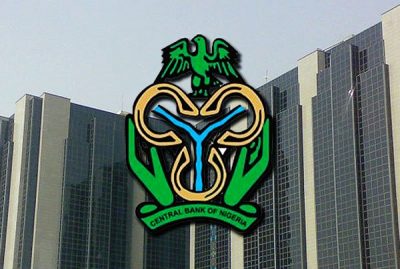

The Central Bank of Nigeria (CBN) has launched a probe into the books of lenders in the country focusing on their top 10 loans, New Telegraph has learnt.
The investigation, which is believed to be part of the stress test, also includes spot checks (unscheduled visits to any branch of a particular bank) and may not be unconnected to the rising Non-Performing Loans (NPL) of lenders.
At least Chief Risk Officers (CFOs) of six banks confirmed that the apex bank’s examiners are in their banks, but declined to give full details.
“Yes, they are around, looking at our books,” said the CFO of one of the tier one banks.
Similarly, his counterpart in one of the tier one banks told this newspaper that some of his colleagues had also confirmed the presence of the CBN examiners in the head offices and some of their branches.
“I can confirm that they are in our head office and had also paid an unscheduled visit to two of our branches and my associates in other banks are also experiencing the same,” he said. “But that is just all I can tell you.”
But New Telegraph learnt that part of the examiners’ task is to look at the sectors where each bank’s loans are concentrated and whether they have breached single obligor limits.
Single obligor limit is the maximum amount a bank is allowed to lend a single borrower or an individual in relation to total shareholders’ funds of that bank.
In a report released in March this year, the International Monetary Fund (IMF) had raised questions over rising NPLs in the Nigerian banking industry.
The IMF noted the level of NPLs in the banking sector had risen to 15.5 per cent as at October 2017 with solvency ratios declining form 14.8 per cent to 10.5 per cent between December 2016 and October 2017, “reflecting difficulties in four small and medium-sized undercapitalised banks, including one insolvent bank.”
Also, in its annual report and statement of accounts for 2017, the Nigeria Deposit Insurance Corporation (NDIC) revealed that banks’ NPLs in 2017 was N2.36 trillion. This represents a 13.46 per cent increase compared to N2.08 trillion in 2016.
According to the corporation, the rising NPLs led to deterioration in banks’ asset quality in 2017.
The NDIC stated: “The banking industry was exposed to high credit risk as the asset quality, which is depicted by the NPLs to Total Loans Ratio, further deteriorated from 12.80 per cent in 2016 to 14.84 per cent in 2017.
“That compared unfavourably with the maximum prudential threshold of 5%. Furthermore, the NPLs to Shareholders’ Fund Ratio significantly increased from 43.84% in 2016 to 69.21% in 2017.”
Also, in its outlook for the nation’s banking sector, released in May this year, global rating agency, Moody’s Investors Service, said it expects banks’ earnings to come under pressure, capital metrics to decline marginally, and asset quality to remain weak within the next 12-18 months, due to declining yields on government securities, the introduction of new IFRS 9 accounting standards, and increase in NPLs of the banks.
“Operating conditions for the Nigeria’s banks will continue to gradually improve over the next 12 to 18 months, but remain challenging,” the Vice President and Senior Credit Officer at Moody’s, Mr. Akin Majekodunmi, disclosed at a conference in Lagos.
However, the rating agency said it expects the pressure on the Nigerian banks’ profitability to be offset partially by a recovery in loan growth and transaction income from the expansion of digital platforms, and the ease of foreign currency shortages.
Foreign currency loans accounted for 40.7 per cent of the system wide loan book at the end of the third quarter of 2017, down from 50 per cent at year-end 2016.
A significant proportion, some 10 per cent to 20 per cent, has been dispersed to borrowers with little or no foreign currency income.
These borrowers are vulnerable to fluctuations in the naira/dollar exchange rate, as a depreciation of the naira reduces their repayment capacity, Moody’s said. (New Telegraph)

